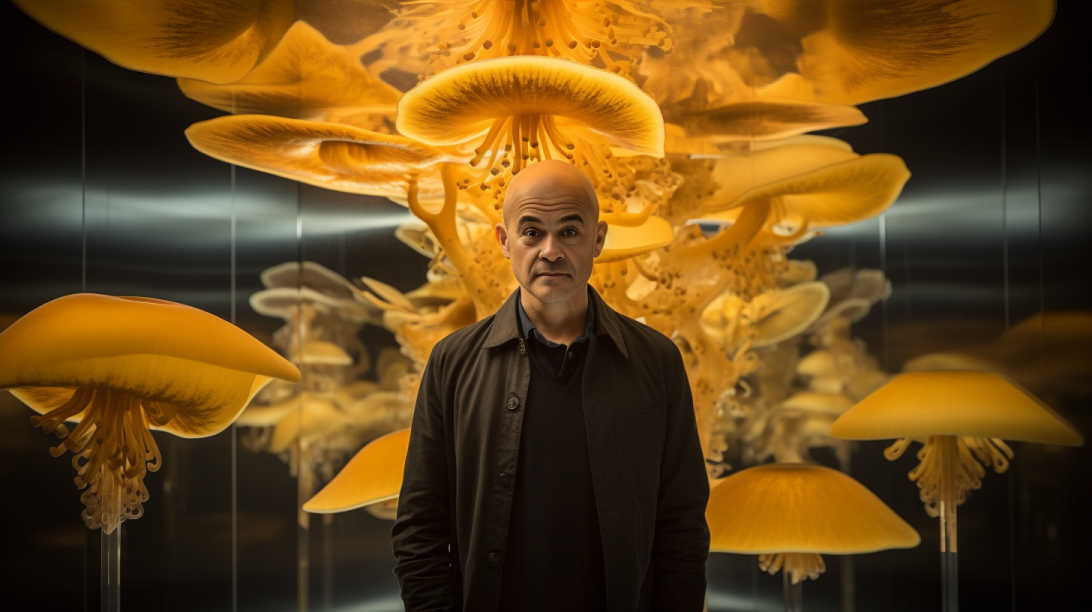Photo was created by Webthat using MidJourney
In a groundbreaking stride towards sustainable nutrition, the Scottish-based fungi-sourced protein company, Enough, has successfully secured an impressive equity funding of £34.2 million (€40 million). This monumental investment is set to power the expansion of their operations, effectively doubling their team and catalyzing the growth of their pioneering business. The focal point of their innovation is an exceptional mycoprotein named “ABUNDA,” a potent ingredient for plant-based alternatives that is about to revolutionize the culinary landscape.
The Fungus-Powered Revolution: ABUNDA’s Nutritional Marvel
Derived from an ingenious process where fungi are cultivated and nourished with grain sugar, ABUNDA emerges as a formidable source of sustainable nutrition. It boasts an impressive profile of all nine essential amino acids, high protein content, and rich dietary fiber. The ingenious fermentation process transforms the grain sugar into a protein-rich mycoprotein, primed for incorporation into meat, fish, or dairy replacements.
Eco-Friendly Impact: Water, Feed, and CO2 Emission Reductions
What sets ABUNDA apart from conventional protein sources is its remarkable ecological footprint. In comparison to beef protein, ABUNDA dramatically reduces water consumption by 93%, feed requirements by 97%, and CO2 emissions by an astounding 97%. Such an incredible reduction in resource usage marks a pivotal advancement in the quest for sustainable protein production.
From University Spinout to Global Leader: Enough’s Inspiring Journey
Founded in 2015 as a spinout from the prestigious University of Strathclyde, Enough has rapidly ascended to the forefront of the food tech industry. With its headquarters nestled in Glasgow, the company has established a thriving commercial hub in London and operates two state-of-the-art factories in the Netherlands. A testament to its commitment to sustainability, Enough boasts a diverse team of 55 employees across these locations, with aspirations to double this number within the next year.
Fueling Growth and Embracing Ethical Nutrition
Jim Laird, the visionary Chief Executive and Founder of Enough, enthusiastically shares his vision for the future: “With this new infusion of funding, we are poised to expedite our growth. The alternative protein market presents a multi-billion dollar opportunity, and the urgency to adopt non-animal protein sources for ethical and environmental reasons has never been greater.”
Cultivating Sustainability: ABUNDA’s Remarkable Production Process
Enough’s journey to revolutionize sustainable nutrition began with the establishment of their first fungi protein factory last year. With an initial production target of 10,000 tonnes annually, the company has its sights set on scaling up to a staggering 60,000 tonnes – equivalent to the protein content of a cow every few minutes. Their ambitious aim is to collectively manufacture a million tonnes by 2032, marking a significant milestone in global sustainability efforts.
A Culinary Laboratory of Innovation
Nestled within the heart of their Glasgow headquarters, Enough houses a captivating “farm and kitchen” R&D center. Here, a scaled-down version of their production facility churns out ABUNDA, serving as a testament to the company’s dedication to innovation and progress.
Championing Sustainability: Partnerships and Investments
World Fund and CPT Capital, lead investors in the latest funding round, have demonstrated unwavering support for Enough’s mission. These visionaries, along with previous backers AXA IM Alts, HAL Investments, Onassis Group, Tailored Solutions, and Scottish Enterprise, are not only investing in a business but in a sustainable future for all. So far, Enough has garnered an impressive €95 million (£81.1 million) from their steadfast backers.
A Sustainable Feast of Innovation
As Enough propels itself toward the future, it carries the torch of sustainable nutrition and ecological responsibility. With their ingenious mycoprotein, ABUNDA, they are reshaping culinary landscapes while drastically reducing resource consumption. This remarkable journey, driven by innovation and partnership, is not only a testament to their dedication but also a promising glimpse into the future of sustainable protein.


